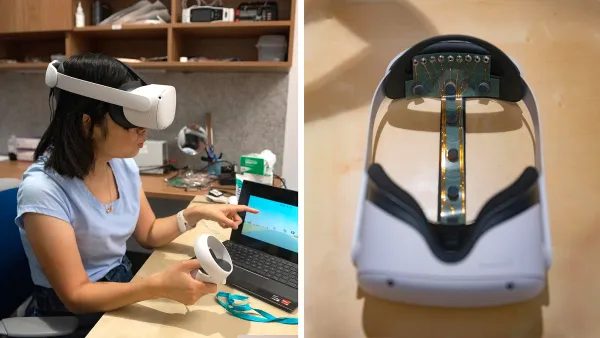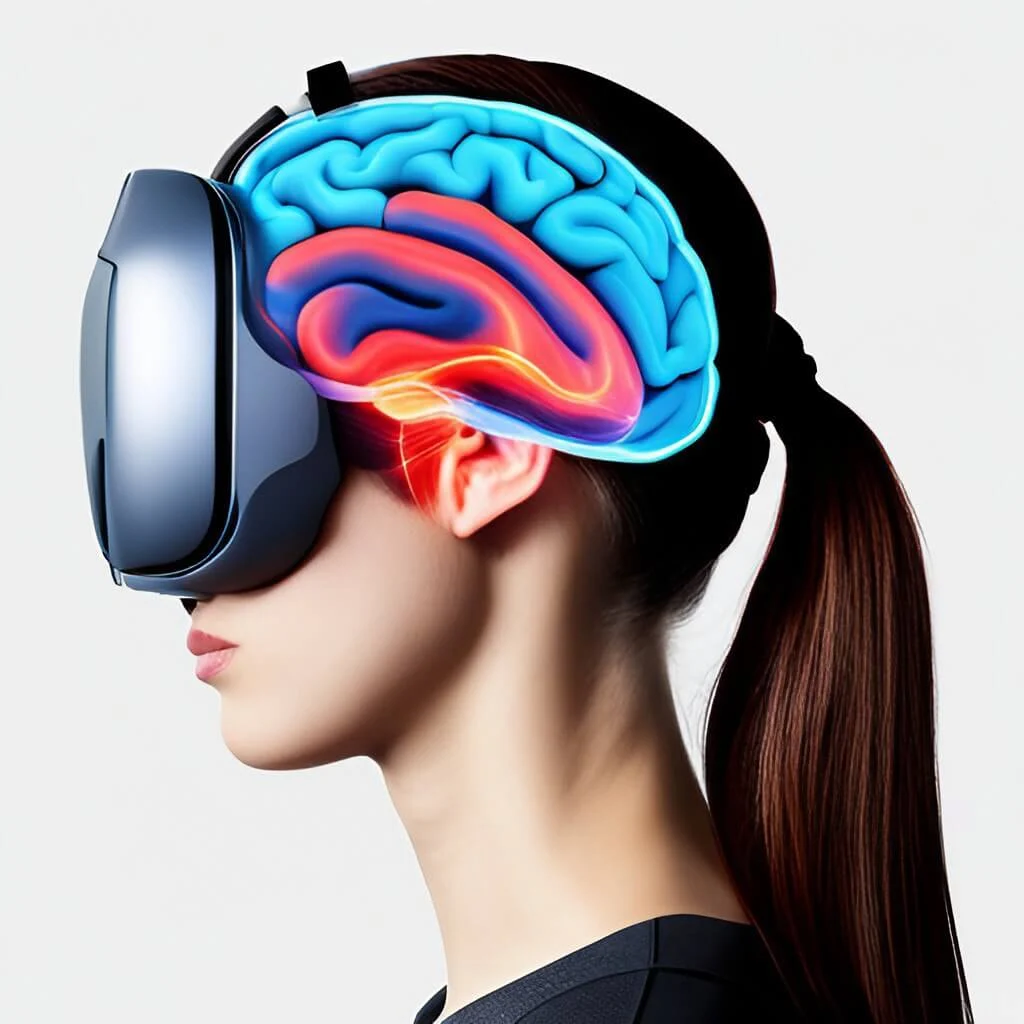University of Texas at Austin Scientists Pave the Way for Innovative Applications in Mental Health and Human Performance.
Researchers at the University of Texas at Austin have achieved a significant breakthrough in the field of virtual reality (VR) and neuroscience by adapting a commercial Meta VR headset to measure brain activity during immersive experiences. This innovative technology holds promise for applications ranging from assisting individuals with anxiety disorders to assessing the mental stress and focus of aviators using flight simulators.
The modified Meta VR headset incorporates a noninvasive electroencephalogram (EEG) sensor that enables continuous monitoring of the user’s brain electrical activity during immersive VR interactions. This EEG sensor has been designed to provide accurate data comfortably, even during extended periods of use, enhancing its suitability for various applications.

Traditional EEG devices have often posed discomfort and limitations, but the University of Texas research team has tackled these challenges head-on. They developed spongy electrodes crafted from soft, conductive materials, significantly improving user comfort and wearability. These innovative electrodes are integrated into the top strap and forehead pad of the headset, along with a flexible circuit featuring conductive traces reminiscent of electronic tattoos. An EEG recording device is affixed to the rear of the headset, creating a seamless and user-friendly experience.
The pairing of VR technology with EEG sensors has already made inroads into the commercial sector. However, existing devices are often cost-prohibitive, and their individual electrodes struggle to provide robust readings due to interference from hair. Popular electrodes are typically rigid and comb-shaped, necessitating uncomfortable insertion through the hair to make skin contact.
The implications of this research are far-reaching. It promises to deepen our understanding of how individuals respond to various stimuli during immersive experiences, shedding light on human cognition, emotional responses, and behavior. Furthermore, the technology has the potential to revolutionize mental health interventions by providing real-time insights into anxiety and stress levels during therapy sessions.

In the realm of human performance, the modified Meta VR headset offers a powerful tool for assessing the attention and mental stress levels of professionals, including aviators training in flight simulators. By harnessing the synergy of VR and EEG sensors, it becomes possible to optimize training programs and enhance safety measures.
As technology continues to bridge the gap between virtual experiences and neuroscience, it opens the door to a new era of research and applications that can enrich our understanding of the human mind and improve mental well-being.
Resources:
1.https://news.utexas.edu/2023/08/03/modified-virtual-reality-tech-can-measure-brain-activity/
2.https://www.sciencedaily.com/releases/2023/08/230804140510.htm
4.https://mhealthintelligence.com/news/texas-researchers-use-vr-technology-to-measure-brain-activity
5.https://bing.com/search?q=Meta+VR+headset+brain+activity+measurement
6.https://www.iotworldtoday.com/health-care/vr-headset-measures-brain-activity